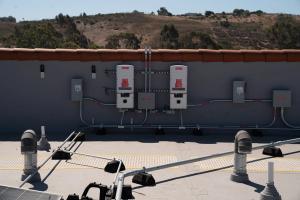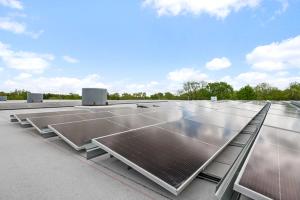Structure projects to meet your needs
Based on your properties, capabilities, and goals, we’ll help you identify the optimal solution for your firm
STRUCTURING AN ENERGY PROJECT
Two key structuring decisions
Once you’ve selected an energy opportunity to pursue, the next step is to determine ‘how.’ Before construction ever starts, there are two aspects to every project that we’ll help you navigate. And as you might expect, there can be legal and financial implications for each.
01
Project Ownership
Who will be the legal owner of the energy assets? Essentially, who is paying for the development and installation of the energy project?
02
Project Monetization
How is the energy project going to be monetized (who is using and purchasing the power)? How are project revenues characterized?

PROJECT OWNERSHIP
Flexible project ownership and capitalization options
We’ll work with you to identify an ownership structure that best suits your needs. The optimal solution may vary from property to property, which we’re set up to accommodate.
Project Monetization
Separate from who owns a project and how it’s capitalized, there are multiple ways to monetize energy infrastructure. During our evaluation of your property, we’ll identify which utility and state programs are available, presenting you multiple options and their tradeoffs. Fortunately, Wunder can support all programs and project monetization strategies.
Behind-the-meter
Allowed virtually everywhere, these energy solutions are engineered for on-site use only. Whether it's a solar system or a battery storage system, these solutions provide energy bill savings to on-site tenants and residents, typically by selling power using a simple Power Purchase Agreement (PPA).
Front-of-meter
Where available, these solutions may provide energy bill savings to on-site tenants, the surrounding community, or even the utility. Common examples include community solar (in which energy is sold to surrounding businesses and residences) and feed-in-tariff programs (where energy is sold directly to the utility).





